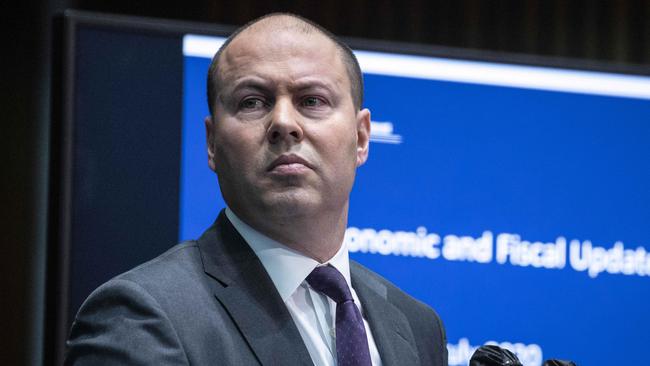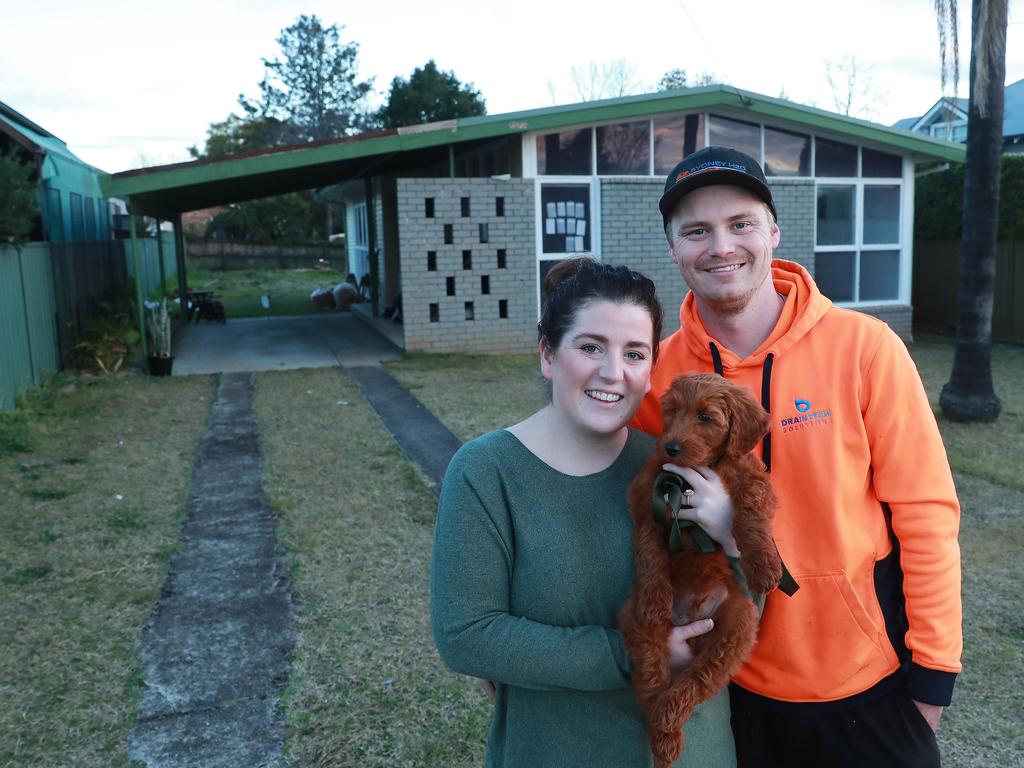Super grab pours $42bn into offset accounts
Super funds fear government is misusing the system as almost $42bn withdrawn from retirement savings during coronavirus crisis.

Almost $42bn will be withdrawn from workers’ retirement savings, exceeding initial forecasts by nearly 50 per cent and fuelling concerns among superannuation funds that the government is misusing the system to help it navigate the coronavirus crisis.
Treasury has revised its estimate about how much money will be withdrawn from the super system from $29.5bn to $41.9bn in light of the take-up of the early release scheme, the decision to extend it until the end of the year and the economically crippling second lockdown in metropolitan Melbourne.
This represents about 1.5 per cent of the $2.7 trillion superannuation system, with more than 2.6 million Australians having taken up the program to help support themselves through the pandemic.
Government analysis of banking sector data has indicated the “vast majority” of the early release payments are being saved, placed in offset accounts to reduce mortgage interest payments or put towards debt repayment.
About 58 per cent of early release payments are classified as “saved/unspent” and remain in workers’ accounts.
Josh Frydenberg told The Australian the extension of the program until the end of December would “provide even further support to those in financial stress, including those impacted by the second wave in Victoria”.
“We know almost 60 per cent of those accessing their super early have used it or plan to use it to meet essential day-to-day expenses, including paying down debts, with another 36 per cent adding the money to their savings,” the Treasurer said.
“The government believes that Australians in financial hardship as a result of the coronavirus should be given the opportunity to access their own money in superannuation to help them get to the other side of the crisis.
“Opponents of the early access to super scheme are basically saying to 2.6 million Australians that we don’t trust you to make your own financial decisions with your own money.”
The fresh data will sharpen the debate between the government and the superannuation sector, which feared some funds — especially industry funds whose members are drawn in large part from the hard-hit retail and tourism sectors — would struggle to meet redemptions.
It comes days after the government received the completed review of the retirement income system that it commissioned last year on the advice of the Productivity Commission, which examined the effectiveness of compulsory superannuation after nearly 30 years in operation.
Industry Super Australia chief executive Bernie Deane said the early access scheme “has to be closed after Christmas if the nation is going to avoid a big headache down the track”, amid estimates from the sector that more than 560,000 members had emptied their super through the program, including more than 463,000 younger than 35.
“There has been some disappointing reports of this scheme being misused, and money spent on highly discretionary items, but to have over half a million people using it to drain their savings completely is devastating, and most of them still pretty early in their working life,” Mr Dean said.
In March, the government let Australians who had lost their jobs or suffered a 20 per cent drop or more in their hours as a result of the coronavirus to access up to $20,000 of their money in superannuation over two financial years, tax-free. It extended the application window in last week’s economic and fiscal update.
The government analysis found the estimated $42bn in withdrawals by December represented about four months of contributions made to Australian Prudential Regulation Authority funds over the past 12 months.
Separate Australian Bureau of Statistics survey data has suggested that 60 per cent of those accessing their superannuation early had used it to meet essential day-to-day expenses — including debt repayment – while a further 36 per cent had added the money to their savings.
Chief executive of the Association of Superannuation Funds Martin Fahy said superannuation had “continued to do the heavy lifting to support the economy” but the reality was there was “plenty of headroom to borrow”, given record low interest rates.
“The government can borrow for 30 years at less than 2 per cent; we more or less have the lowest public debt, except Switzerland or Denmark,” he added.
ASFA had previously estimated $43bn would be withdrawn before the extension, with the super sector arguing that members who withdrew funds would undermine their retirement incomes.
“There’s clear arbitrage between the government’s ability to borrow and negative real interest rates and super funds’ ability to generate 4.5 per cent real annual returns,” Mr Fahy said.
“The existing provisions for early release for reasons of hardship will still be available.”
The existing provisions allow early access to super on grounds of permanent and temporary incapacity, but also on grounds of severe financial hardship if an individual has received government income support payments for 26 weeks and is unable to meet immediate living expenses.
Access may also be provided on compassionate grounds for unpaid expenses including medical treatment or transport, palliative care, the purchase of disability aids and expenses associated with a death or funeral.
Data published by APRA on Monday confirmed that average early release payments were running at $7719 and 96 per cent of applications were being processed within five business days.
The government’s analysis – obtained by The Australian — said superfunds had $300bn in cash going into the pandemic to handle withdrawals “without changing their asset allocation”.
Mr Fahy said individuals who were using withdrawn super to pay rent or debt should receive some form of government benefit. “We don’t want a situation where the money is simply passing from one person’s retirement savings to another person’s self-managed super fund in the form of rent,” he said, noting that many SMSFs held rental property.
The extension of early access comes as a growing group of Liberal backbenchers press the government to use the retirement income review to delay or stop a legislated increase in superannuation guarantee from 9.5 per cent to 12 per cent by 2024.








To join the conversation, please log in. Don't have an account? Register
Join the conversation, you are commenting as Logout